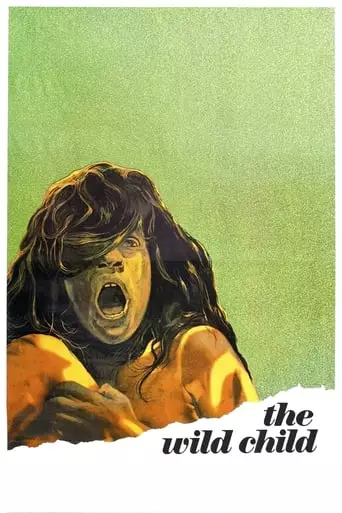
The Wild Child (1970) Watch Online Free
In 1798, a feral boy is discovered outside the town of Aveyron, France. Diagnosed as mentally impaired, he is relegated to an asylum. A young doctor named Jean Itard becomes convinced that the boy has normal mental capacity, but that his development was hindered by lack of contact with society. He brings the boy home and begins an arduous attempt at education over several years.
The Wild Child (original title: L’Enfant Sauvage), directed by François Truffaut, tells the story of Victor, a young boy found in the forests of Aveyron, France, in 1798. Victor is thought to have been abandoned by his parents and raised by animals, having no exposure to human society. When he is discovered, his mental state is believed to be impaired due to his isolation. Dr. Jean Itard, a young physician, takes it upon himself to educate the boy, hoping to reintegrate him into society.
The film focuses on Itard’s attempts to teach Victor basic human skills—such as speech, proper behavior, and hygiene—while also exploring deeper themes of civilization versus the wild. As the boy slowly adapts to his new environment, his progress remains minimal, questioning whether true civilization is attainable for someone who has spent so long outside human society.
The Wild Child examines profound philosophical and psychological questions about human nature, education, and society. One of the central themes is the conflict between civilization and the natural state of man. Dr. Itard’s belief in the transformative power of education mirrors Enlightenment ideals, particularly those of Jean-Jacques Rousseau, who proposed that humans are inherently good but corrupted by society. The film challenges whether “civilization” truly improves human beings or simply forces them to conform to social expectations.
The film also explores the limitations of education and the nature of human development. Victor’s progress under Dr. Itard’s care is slow and often frustrating. He learns to perform a few basic tasks but struggles with language and social norms. This suggests that while education is essential, it may not always be enough to change fundamental aspects of a person’s nature.
Truffaut also uses The Wild Child to reflect his own views on childhood. Having previously explored adolescence in The 400 Blows (1959), he now turns to the earliest stages of development, emphasizing how society shapes and molds children. Through Victor’s journey, the film offers a meditation on the human capacity for growth and the complex relationship between individuals and the societies they inhabit.
After watching The Wild Child, you may feel a range of emotions. The film is both poignant and thought-provoking, leaving viewers to contemplate the fundamental nature of humanity. The slow pace and introspective tone may lead to feelings of melancholy or introspection, especially as you reflect on the difficulties of Victor’s education and his inability to fully integrate into society. The relationship between Victor and Dr. Itard is deeply moving, and viewers may feel sympathy for both characters as they struggle to understand each other.
On a deeper level, the film’s exploration of civilization versus nature might leave you questioning the value of societal norms and education, while the tragic, open-ended conclusion might evoke a sense of unresolved sorrow or a bittersweet reflection on the limits of human potential. Ultimately, The Wild Child is likely to leave you with a lasting emotional impact, urging you to consider the complexities of human development and the profound influence of society on individual lives.
